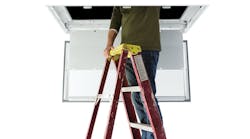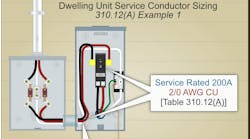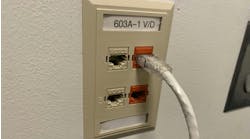In this column, I’ve talked a lot about the different career paths apprentices can pursue as they work their way up the electrical ladder. Becoming an electrical inspector may be an option you hadn’t originally considered but definitely one that’s worthwhile. Electrical inspectors establish their authority, expertise, and resources within the construction industry differently. So before you follow this route, make sure you understand the different choices, salaries, and requirements involved.
Types of Inspectors
First, let’s look at the most common roles found for inspectors in the electrical construction industry:
- Township — Electrical inspectors only work within a jurisdiction, city, borough, or municipality as a salaried employee who reports to a department head or city official.
- Third-Party — Electrical inspectors work under a privately owned agency that can serve multiple jurisdictions and perform inspections for homeowners, business owners, and contractors. These inspectors may act as a subcontractor within their agency and be paid by a structured, tiered, or negotiated compensation model based on the amount and type of inspections they perform throughout the year for their agency.
- Business Owner — This type of electrical inspector forms an independent agency, and hires and subcontracts with other certified inspectors to work under their direction. However, the requirements are more stringent, lengthier, and costly. In this model, the inspectors may bring in their own clients and serve the business owner's clients.
To be considered for an electrical inspector’s license, there are some basic questions you’ll need to answer that will help you pursue this career path. However, the final determining factors may change based on the jurisdiction, state, and the job requirements for the specific role you’re interested in.
- Did you attend a trade school program, state-registered apprenticeship program, or can you verify completion of any formal training in the electrical industry?
- Do you have two to four years of verifiable field experience as an electrician or electrical contractor (pay stubs or W-2s)?
- Did you work consistently as an electrician or repair technician under the direct supervision of a master electrician or maintenance department head?
- Did you serve in the armed forces as an electrician or technician?
- Will any of these electricians or department heads vouch for your experience?
- Do you have prior experience as an inspector in another trade?
Inspectors: Who They Are, and What They Do
Electrical inspectors are the cornerstone of the construction community, responsible for interpreting and enforcing the minimum guidelines set forth by the National Electrical Code (NEC) and local electrical codes. Code guidelines must be administered firmly for public safety; the inspector must enforce these guidelines intelligently and purposefully.
The primary focus of the electrical underwriter/inspector is making sure the consumer is safe from electrical hazards that "arise from the use of electricity." They must perform their duties without commercial bias and be adept in construction techniques of various trades. Inspectors are charged with providing:
- Expert opinions that promote electrical safety and uniformity in the electrical industry.
- Unbiased leadership and promoting professional development within the industry.
- Assisting with the development of new standards and practices.
Typically, inspectors are affiliated with multiple trade associations that further develop their education and resources for code compliance and enforcement, such as the International Association of Electrical Inspectors, an organization committed to public safety from electrical hazards by providing expert, unbiased leadership in electrical code and standards development and premier education and certification for electrical professionals.
In addition, memberships in local construction-based associations assist electrical inspectors in promoting or advocating for future code changes and adopting new standards and practices for electricians and other inspectors.
Inspectors also provide aid to testing agencies, standards organizations, manufacturers, and electrical equipment distributors in researching solutions or resolving problems with electrical products. In this role, their primary focus is to make impartial judgments for quality control and best practices based on their field inspections to reduce potentially harmful events.
They can be hired or requested through the jurisdictions/cities they are licensed in or by a list provided by the local utility company. Most inspectors work under an agency with minimum oversight; they check in with the agency owner or the leader of their code enforcement department.
The electrical inspector is a mediator and an advisor; he or she sits between all parties involved in the jurisdiction or municipality, contractors, and customers, working together to hit critical deadlines for the project while assessing any risk exposure and potential liabilities for the township, homeowner, or business owner. He or she must be a patient listener, observant, accommodating when necessary, articulate, and fair. The inspector must use his or her wisdom from the past but be loyal to current code requirements and past editions being enforced.
The Exam
Electrical inspector exams are structured at a cognitive level — categorized based on how a candidate would likely respond to specific situations, such as:
- The ability to recall or recognize specific information is required. A firm grasp of NEC Chapters 3-7 is necessary; additional national building code publication navigation may also be required.
- The ability to comprehend, relate, or apply knowledge to new or changing situations is usually required.
- The ability to analyze and synthesize information, determine solutions, and evaluate a solution’s usefulness is required.
- Must be adept in the current edition of the UL Guide Information for Electrical Equipment (White Book), a reference book that provides detailed specifications for electrical equipment.
Typically, electrical inspectors deal with innumerable requests for NEC interpretations on a daily basis from consumers, contractors, engineers, and other building inspectors. Some serve on volunteer code-making panels, reading code proposals and drafting responses to proposals.
As you can see, this is not a career choice for unmotivated individuals. Inspectors are highly trained professionals dedicated to the electrical craft, logging countless hours of field work, education, and training.
De Loach, a master electrician and electrical trainer/instructor, is the founder of The Academy of Industrial Arts (www.taia-school.com) in Philadelphia. With more than 30 years of experience in the field, he will be writing regular exclusive content for E-Train and can be reached at [email protected].



